Introduction to Shibaura Institute of Technology
Overview
Shibaura Institute of Technology (Shibaura Institute of Technology, referred to as "Shibaura Institute of Technology") is a private university located in Koto-ku, Tokyo, Japan. It was founded in 1927 and became a new university in 1949. The school aims to cultivate high-quality talents with high-level engineering technology and innovative spirit, and pays special attention to the comprehensive development and practical ability of students. Shibaura Institute of Technology has a high reputation in the field of engineering and technology and is one of Japan's well-known science and engineering universities.
Campus
Shibaura Institute of Technology has three campuses:
Toyosu Campus: Located at 3-7-5 Toyosu, Koto-ku, Tokyo, it is the main campus of the school and is mainly responsible for the teaching activities of the Faculty of Engineering, Faculty of System Science and Engineering, Faculty of Design Engineering, and Faculty of Architecture.
Okisho Campus: Located at 1-191 Okisho, Chikusa-ku, Nagoya City, Aichi Prefecture, it is mainly responsible for the education and research activities of the Graduate School.
Toda Campus: Located at 2-17-1 Toda, Toda City, Saitama Prefecture, it is mainly responsible for some teaching activities of the Faculty of Engineering.
Educational philosophy
Shibaura Institute of Technology adheres to the educational philosophy of "creation and contribution" and emphasizes the cultivation of students' innovative ability and social responsibility. The school is committed to cultivating talents with international vision and social responsibility, and pays special attention to the comprehensive development and practical ability of students.
Disciplines and majors
Shibaura Institute of Technology has multiple disciplines and majors, covering a wide range of engineering and technology fields:
Faculty of Engineering
Mechanical Engineering
Electrical and Electronic Engineering
Applied Chemistry
Bioengineering
Information Engineering
Faculty of Systems Science and Engineering
Information Engineering
Mechanical Systems Engineering
Electrical and Electronic Systems Engineering
Biosystems Engineering
Faculty of Design Engineering
Product Design Engineering
Architectural Design Engineering
Faculty of Architecture
Architecture
Specialized courses
Mechanical Engineering: Learn the basic theories and practical methods of mechanical engineering, and cultivate professional talents who can work in manufacturing, automotive industry and other fields.
Electrical and Electronic Engineering: Learn the basic theories and practical methods of electrical and electronic engineering, and cultivate professionals who can work in the fields of electricity, communications, etc.
Applied Chemistry: Learn the basic theories and practical methods of applied chemistry, and cultivate professionals who can work in the fields of materials science, environmental science, etc.
Bioengineering: Learn the basic theories and practical methods of bioengineering, and cultivate professionals who can work in the fields of biotechnology, medicine, etc.
Information Engineering: Learn the basic theories and practical methods of information technology, and cultivate professionals who can work in the fields of computer science, network technology, etc.
Information Engineering: Learn the basic theories and practical methods of information processing and communication technology, and cultivate professionals who can work in the fields of information technology, data science, etc.
Mechanical System Engineering: Learn the basic theories and practical methods of mechanical system design and control, and cultivate professionals who can work in the fields of robotics, automation, etc.
Electrical and Electronic System Engineering: Learn the basic theories and practical methods of electrical and electronic system design and control, and cultivate professionals who can work in the fields of power systems, electronic equipment, etc.
Biological System Engineering: Learn the basic theories and practical methods of biological system analysis and design, and cultivate professionals who can work in the fields of biomedical engineering, biotechnology, etc.
Product Design Engineering: Learn the basic theories and practical methods of product design, and cultivate professionals who can work in industrial design, product development and other fields.
Architectural Design Engineering: Learn the basic theories and practical methods of architectural design, and cultivate professionals who can work in architectural design, urban planning and other fields.
Architectural Discipline: Learn the basic theories and practical methods of architecture, and cultivate professionals who can work in architectural design, construction management and other fields.
Practical Teaching
Shibaura Institute of Technology has advanced laboratories and practice bases, providing students with rich practical teaching resources. The school has established cooperative relationships with many companies and research institutions, providing students with rich internship and practice opportunities. The school also has a number of research centers and laboratories to support students in scientific research projects and innovation activities.
International Exchange
Shibaura Institute of Technology actively participates in international exchange programs, and has established cooperative relationships with universities and research institutions in many countries, providing students with opportunities for overseas study and exchange. The school has an International Student Office to provide comprehensive support and services for international students.
Ranking
Shibaura Institute of Technology has a high reputation in the field of engineering and technology, especially among Japanese private universities. According to the QS World University Rankings, Shibaura Institute of Technology also has a certain influence worldwide.
Fees
Admission fee: Approximately 200,000 yen
Tuition fee: Approximately 800,000 to 900,000 yen per year
Specific fees may vary, so it is recommended to contact the school directly for the latest information.
Campus
Shibaura Institute of Technology has a beautiful campus with complete facilities, including modern teaching buildings, laboratories, libraries and sports facilities. The school also has student dormitories to provide convenient living conditions for out-of-town students.
Contact information
Tel: +81-3-3595-3211
Fax: +81-3-3595-3212
Email: info@shibaura-it.ac.jp
Other information
Internship opportunities: The school has established cooperative relationships with many companies and research institutions, providing students with abundant internship and practice opportunities.
Employment support: The school has a career guidance center that provides students with employment counseling, resume writing guidance, interview skills training and other services to help students find employment smoothly.
Scholarship system: The school has a variety of scholarship systems to help students reduce their financial burden.
-
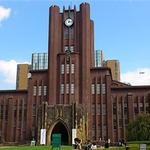
The University of Tokyo
-
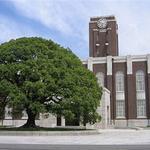
Kyoto University
-
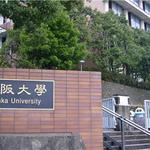
Osaka University
-
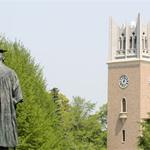
Waseda University
-
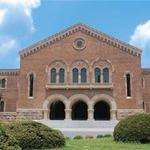
Hitotsubashi University
-
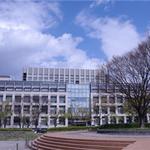
Nagoya University
-
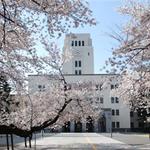
Tokyo Institute of Technology
-
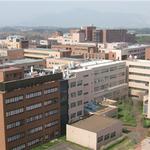
University of Tsukuba
-
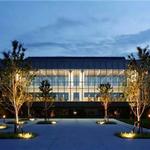
Keio University
-
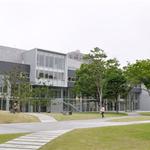
Tohoku University
-

Mesoamerican University
-

Istmo University
-

Mariano Galvez University of Guatemala
-

Regional University of Guatemala
-

Galileo University
-

Francisco Marroquín University
-

Rafael Landívar University
-

University of the Valley of Guatemala
-

University of San Carlos of Guatemala
-

Technological Institute of Tlaxcala Plateau
-

Golfo University
-

Technological University of South Sonora
-

Technological University of Huejotzingo
-

Tizimín Institute of Technology
-

Chilpancingo Institute of Technology

